Mystery and strength of wheat.
The wheat field is very beautiful, the sun shines with gold. From here is the expression of the golden ear, the golden wheat field. There where I live two fields: wheat and sunflowers. When I walked near the wheat field, I decided to take a picture.
(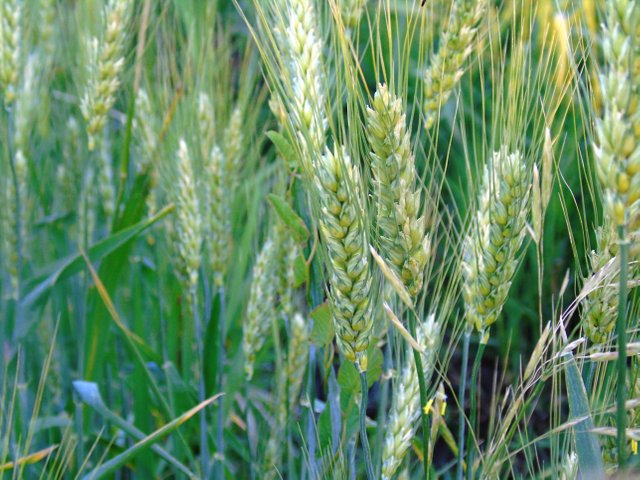
Photo taken fromdigital camera of SONY DSC - H400,from personal archive.
Понедельник квест: Природа и фотография людей
Вторник квеста: фотография животных и магических часов
Среда квест: фотография автомобиля и архитектуры
Четверг квест: вид на город и уличная фотография
Пятничный квест: макросъемка
Sowing and collecting grain crops: wheat, barley, corn - since ancient times was accompanied by rituals. So, in the lands of Europe, people believed that the spirit that dwells in the bread field, goes into the not yet compressed grain.
(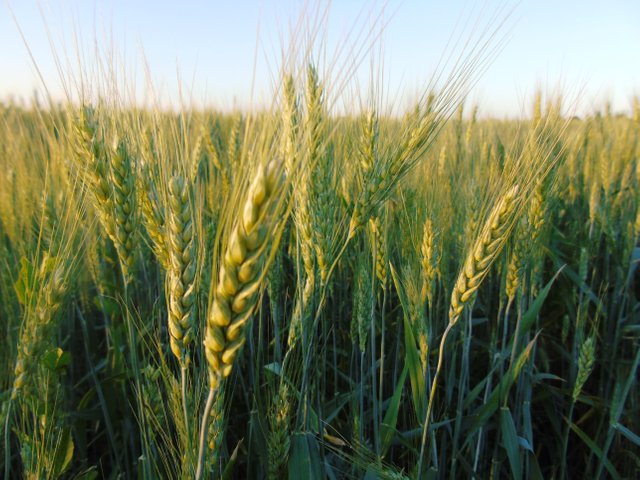
Therefore, no one wanted to cut the last uncompressed strip. The reapers in turn threw sickles into it, until all the ears were cut. In Scots, on the contrary, the cutting of the last ears was an honorable duty. They believed that at that moment the beneficent, fertile power of the spirit of the grain passed on the reaper or the priestess. The last sheaf was tied in such a way that it resembled a female figure, and was called the Mother of Bread. It was a special, strictly observed rite.
In Europe, revered "Two Goddesses" - Mother of Bread and the Virgin of Bread. In Ancient Greece, this is Demeter and her daughter Persephone; the Romans - Ceres and Proserpine.
(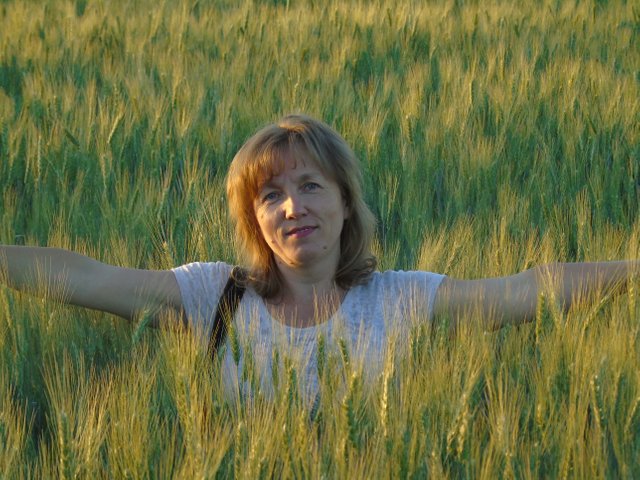
In the starry sky, the goddess Demeter is the constellation of the Virgin. On ancient star charts and in atlases, it was depicted as a winged girl holding a mature wheat ear in her hand. And the brightest star of the constellation, the Alpha of the Virgin, was called Spica, the "ear". According to the myth, Demeter gave the people the first ear of wheat, taught Triptolem, the son of Eleusinian king Keleus and Queen Metamir. There are images on which the prince travels on a golden chariot drawn by winged dragons, and spreads over the whole earth the grain of wheat that the goddess gave him. Triptolem not only sowed the land, but also taught it to people. That is, the myth of Demeter tells of the birth of culture: the word "culture" comes from the Latin cultura - "cultivation." And the name of Triptolem is translated as "three fields" - according to the myth, before planting the wheat, he plowed the field three times. It is interesting that in the collection of proverbs and sayings of Vladimir Ivanovich Dal, there is a greeting formula with which they turned to the finished harvest: "With two fields squeezed, with a third seeded!".
In ancient Egypt, the seasons and the Nile determined the seasons. The beginning of the rise of water was also the beginning of the new year (mid-July). The spill of the river coincided with the appearance on the horizon of Sirius, which had not been seen before for 70 days. The Egyptians had three seasons: "Spill", "Revival", when the fields came off the water and they began to process, and "Hot Time" or "Harvest" - the harvesting period and the lowest water level. At this time, a constellation of the Virgin appeared on the horizon. And the most vivid stars of the Virgin, the Egyptians called "Girls-Priests" or simply "Priests"
(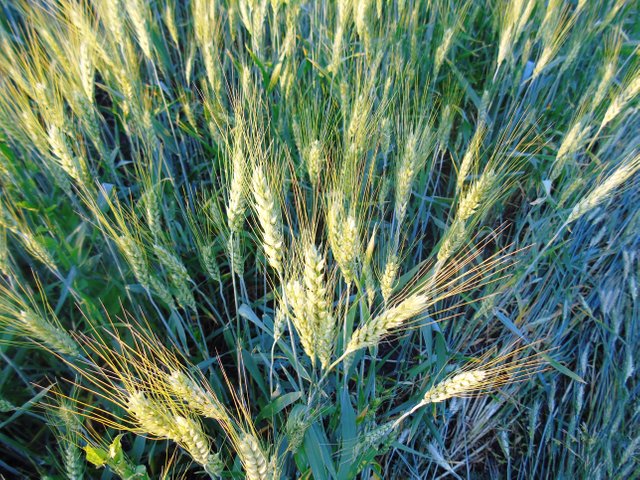
The golden ears are the children of the marriage of the shining Sun and the virgin Earth, a symbol of fertility, rebirth, the divine gift of life. Spikes or sheaves of wheat and other grains are attributes of the gods, embodying not only the fertility of the earth, but the power of life itself, awakening, reborn from death through the power of the Sun. The Great Mother (Cybele, Demeter, Ceres, Anat) are living, creative cosmic forces that renew the life of the world, not allowing it to stop and cease to exist.
Those who became "the sons of two goddesses" (as the initiates were called into the Eleusinian mysteries) lived a normal life, but, Aristophanes claimed, "led a clean, quiet and holy life," because they had the wisdom to distinguish between good and evil, not to confuse one with another. All in their life they correlated with the beautiful and fair. Having lived through the experience of death during the Mysteries, they learned the true value of life, learned to appreciate it. And they never tried to escape the trials of fate and met them without fear. Apothecary of Plato Aristotle in "Nichomache Ethics" wrote that life is better short, but bright and full of meaning, dedicated to the higher goal than the long, but gray, ordinary, spent on trifles.
(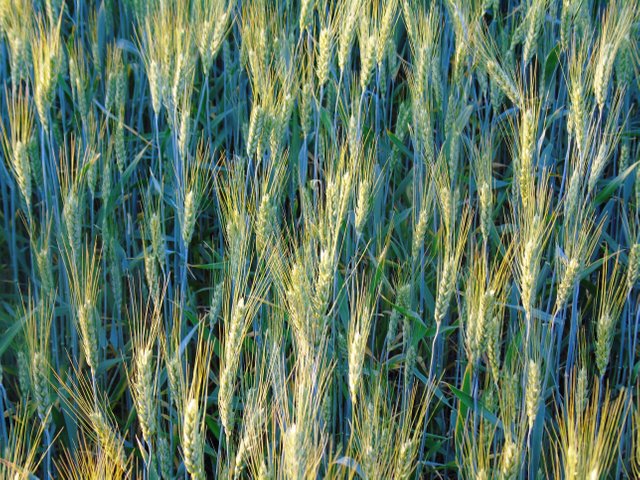
We know perfectly well that we will not live forever, but we believe that we will not die today or tomorrow, - day after day ... until death. Unfortunately, often because of this we take a superficial attitude to life, we too cling to daily trifles, not noticing that time passes, that the year runs year after year. Quite different attitude to the gift of being on earth was those who passed the mysteries of Demeter and Persephone, joined the sacraments of life and death. They have learned that one can not be reborn if one does not give everything, completely, if one tries to preserve something "his" or "himself today", because if the grain tries to do this, will there be a spike? And what is happening now, not only had once been, but will be repeated again. This is the law of nature, the law of Life.
http://www.manwb.ru
Follow @bible.com
World of Photography
>Visit the website<
You have earned 6.50 XP for sharing your photo!
Daily photos: 1/2
Daily comments: 0/5
Multiplier: 1.30
Block time: 2018-06-21T19:34:03
Total XP: 381.15/200.00
Total Photos: 61
Total comments: 13
Total contest wins: 0
Follow: @photocontests
Join the Discord channel: click!
Play and win SBD: @fairlotto
Daily Steem Statistics: @dailysteemreport
Learn how to program Steem-Python applications: @steempytutorials
Developed and sponsored by: @juliank
U are best work on this
Thank you